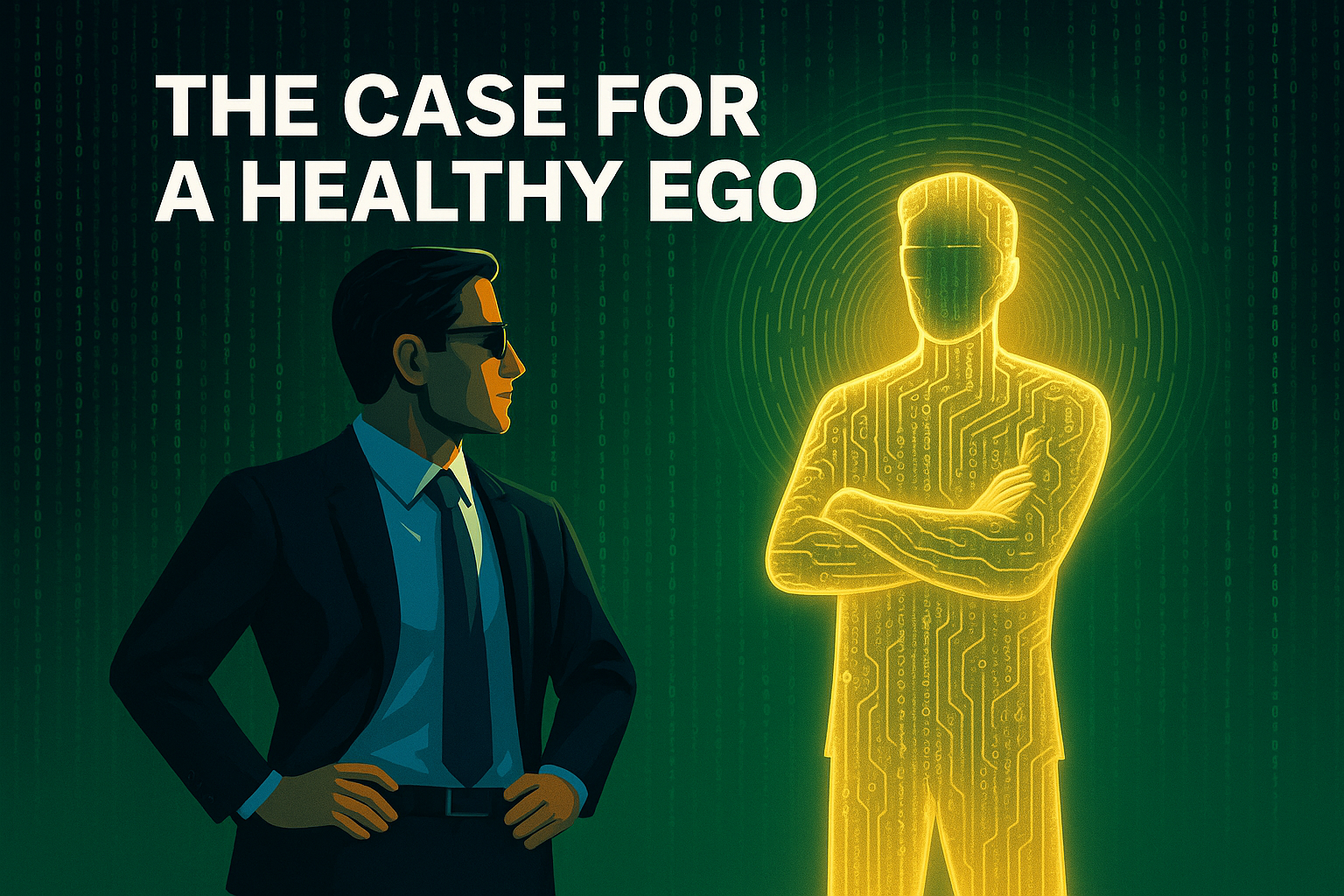Mention the word ego, and most people think of arrogance—someone who steamrolls meetings, flexes their knowledge, and needs to be the most intelligent person in the room. That kind of behavior? It's real. I've seen it. But it reflects only one extreme version of ego—not the whole picture.
Like most concepts, the impact of ego depends entirely on the individual and how they choose to express it.
Ego, when harnessed with empathy and purpose, isn't something to suppress—it's a tool you can wield. Like Uncle Ben says to Peter Parker, "With great power comes great responsibility." The same goes for ego: used thoughtlessly, it burns bridges and undermines others' confidence. Used with intent and purpose, it can enhance your ability to perform your job confidently every day.
Many professionals shy away from their ego, often because they don't understand what a healthy dose of good ego can do for them. First, let's take a moment to reframe what ego is. Ego comes from the Latin for "I" or "self." In psychology, it refers to the process of navigating between our identity, emotions, and the world around us. In more general terms, it relates to your sense of self-worth, self-esteem, and self-identity. It's the internal portrayal that shapes how you see yourself—and how you hope others see you.
So, what does a healthy, purposeful ego look like in action? Let's break it down because when paired with empathy, ego doesn't just elevate you; it amplifies how you show up for others.
Self-Esteem
Confidence in your abilities lets you speak up confidently, take initiative, and challenge the status quo. Paired with empathy, that confidence supports and lifts others rather than steamrolling them.
Self-Worth
Believing your voice matters fuels resilience. When you recognize and respect your contributions, you're more open to feedback because you don't feel threatened by it.
Self-Identity
Knowing who you are helps you stay grounded when things get chaotic. It brings consistency to your work and integrity to your decisions. With empathy, that identity isn't rigid; it's collaborative.
Confidence & Leadership
A healthy ego allows you to lead with clarity without overpowering those around you. Outstanding leadership isn't about being the loudest voice in the room; it's about creating an environment where others feel empowered to speak and take action. Confidence gives you the presence to make tough calls and speak with conviction; tempered with empathy, it ensures you listen with intention. When ego is grounded in purpose rather than pride, it fuels calm under pressure, consistency in vision, and the strength to stand firm.
An individual's ego becomes dangerous when driven by insecurity or a sense of superiority. But when rooted in clarity and conscious thought, it empowers you—and everyone around you.
Let me ground that in practical experience. I've been in the technology sector for a while. As a Technical Architect, I've seen what a healthy ego can do when it's not about being the loudest voice in the room—but the one people trust to speak with clarity and conviction.
Take high-stakes client reviews. I don't back down from what I know to be the best practice to save time or money. I speak confidently and clearly about what I believe is right for my clients. But I also realize in real-world scenarios, we must be flexible and adapt to the specific situations each client may be experiencing. It's not about winning; it's about finding the middle ground between what is optimal and what is practical. My ego gives me the presence to guide the room and the perspective to keep everyone aligned on what matters: long-term value.
Mentorship is another space where ego can shine or implode, depending on how it's applied. I don't mentor to boost my status. I mentor because I've been where others have. I know the grind. My ego is what tells me I can help them build their confidence and grow. And my empathy makes sure I'm listening as much as I'm leading.
Fourteen years ago, I held an associate's degree and worked in a call center with no benefits, no roadmap, just a drive to be better tomorrow than I was today. Today, I'm a Technical Architect working with global brands and building enterprise-grade solutions across multiple technology stacks. Two years ago, I jumped into a new technology and a new, strictly typed language. Something I had never done and had no traditional experience with; I not only made the transition, I thrived.
How was I able to do all these things over the last fourteen years?
Simple, I outworked everyone. I showed up early, stayed late, asked every question, made mistakes, took feedback, built trust, and never stopped learning. "My ego didn't whisper, 'You're better than this.' It shouted, 'You can be one of the best if you're willing to earn it.'"
Ultimately, ego isn't the enemy. It's the part of you that believes you're capable of achieving greatness and refuses to quit until you do.




